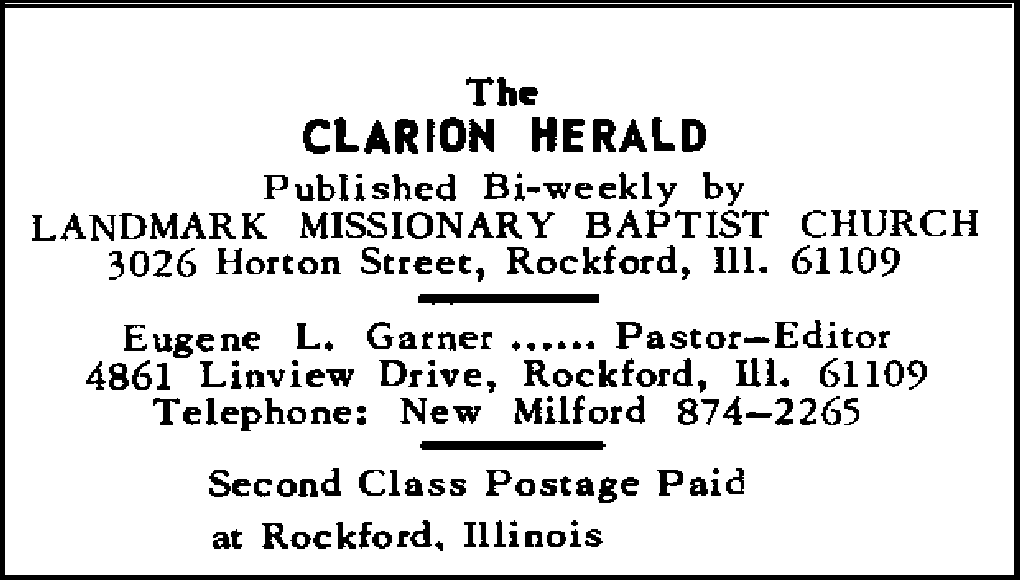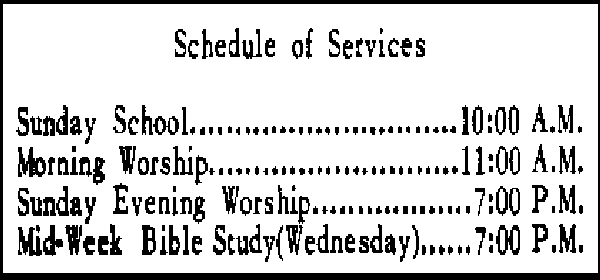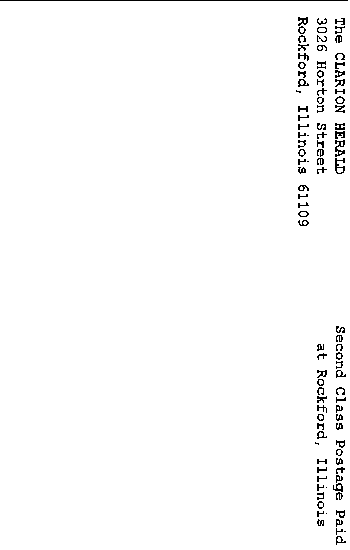
|
 |
 |
 |
|
 
|
|
|
THE MIND OF CHRIST ... MEEKNESS
"I am meek and lowly in heart", (Matt. 11:19).
In great minds there is often a beautiful blending of majesty and humility, magnanimity and lowliness. The mightiest and holiest Being that ever walked on earth was the meekest of all. The Ancient of Days was as "the infant of days". He whose ears had been filled with angel-melodies from all eternity found melody, while on earth, in the lisping of an infant's voice and in the tears of an outcast!
No wonder an innocent LAMB was His emblem, or that the anointing Holy Spirit came upon Him in the form of a gentle dove!
Jesus Christ had the wealth of worlds at His feet. The hosts of heaven only awaited His summons to service. But all the pageantry of the world, with its dreams of carnal glory, had no fascination for Him. From a mountain summit the tempter showed Him a vast scene of splendid misery - offering it to him for His worship; but He spurned both the temptation and the tempter. James and John would call down fire from heaven upon an unappreciative Samaritan village; but He
(Continued on Page 6)
|
|
|
|
A WARNING AGAINST UNIVERSALISM AND DENOMINATIONALISM
In his Presidential address, to messengers of the ABA in Tucson last month, Pastor W. A. Dillard cautioned his brethren against the encroachment of Universalism and Denominationalism into their ranks. This editor commends the courage and candor with which this leader among his brethren has addressed himself to the situation, and prays that none of his brethren "will play the role of Sanballet and beat him down with innuendos and labels for having dared to attribute special Holy Spirit indwelling to the church and exalting it as the physical expression of New Testament Christianity in the world".
Decrying the inroads being made by universalism, Bro. Dillard suggests that "Baptist people have grown accustomed to viewing all Scripture and all theology with a 'born again' syndrome", and submits that too many have succumbed to the Protestant line "that all the fullness of Christ is received in the repentance, faith-in-Christ experience"- the initial step in God's great plan of salvation.
Pastor Dillard clearly identifies himself as a "churchman" in
|
|
|
|
|
Page - 2
his assertion that "the day is far spent and the time past for our colleges, seminaries and institutes to indelibly impress upon minds, and for pulpits to declare with boldness, that a Protestant or neo-Protestant religious congregation of saved people is NOT related to, AND SHOULD NOT BE CONFUSED WITH (Ed's emphasis), a church of the Lord Jesus Christ." And his practical application was that "much of the New Testament is to be understood and applied IN CHURCH CONTEXT and not simply in the initial faith-in-Christ context of Protestant theology!"
"Let us reaffirm" he continues, "that while the Holy Spirit comes within to effect the new birth upon whosoever will (I Cor. 12:3; Eph 4:30), let us also reaffirm the office work of the Holy Spirit as taking the bodily presence of Jesus IN THE CHURCH, (Jn. 16:7-15; Acts 2:1-21). The hyper-evangelist may equate having the salvation exper-
|
|
|
|
ience as Christianity. Let US declare that WITHOUT THE CHURCH THERE IS NO CHRISTIANITY! Love and marriage, horse and carriage; they go together. So do Christianity and Christ's body, His bride, His flock His branches, His church!"
Addressing himself to the other evil, Bro. Dillard continued: "Denominationalism tightens its tentacles on the minds of an unsuspecting brotherhood bent upon place, power, prestige, and identification in the world. The horns of this dilemma are just as sharp as those of universalism ... as that relates to church independence vs. denominationalism. In verbiage SUPERSTRUCTURE is abhorred, but in practice it is INDEPENDENCE that is feared. This is manifest in centralization tendencies and a sense of oneness whether it be glory or shame, triumph or defeat, liberty or bondage".
It is heartening to recognize in this brother a courage equal to the responsibility of his position. And I pray that, instead of castigating him for his forthrightness, his brethren will give adequate heed to such wise counsel, and loving call to responsibility, as Brother Dillard has given. E.G.
WE WELCOME
In our haste to meet the dead- line for our mailing last month, we forgot to mention two who had united with our church last month. Thus, though a bit tardy, we sincerely welcome Elder Eugene Tanker, and his wife, Nell, into our fellowship. It is our earnest prayer that this may prove to be a mutual blessing in the days to come. E.G.
|
|
|
|
|
Studies in I Corinthians
A TRUE MINISTRY DOES NOT CATER TO HUMAN OPINIONS
Scripture Lesson: I Corinthians 4:1-7.
INTRODUCTION: The Corinthian concept of the Gospel ministry was as erroneous as that of most twentieth-century churchmen. They viewed ministers as big shot travelling preachers, outstanding in their knowledge and eloquence, and with zealous, partisan supporters in every church. Paul has tried to correct this false concept. Here he undertakes to set forth, in a positive way, the true concept of the ministry.
I. MINISTERIAL RESPONSIBILITY, (vs. 1-2).
- A TRUE MINISTER NEVER FORGETS WHOSE SERVANT HE IS.
- He is NOT the servant of men, but of Christ.
- The word for servant" is the Greek "huperetes", which literally means "an under-rower - a galley-slave on a warship, whose eyes were constantly on his, Captain, that he might immediately respond to his command.
- Generally speaking, "huperetes" views a servant in relation to his superior.
- ) Jesus so used the word in John 18:36.
- ) And Luke used it of John Mark - the attendant of Paul and Barnabas as they began their first missionary journey (Acts 13:5).
- Nor is he to seek human recognition, approval or applause, (Gal. 1:10).
- His service is always to be rendered "AS UNTO Christ", and "for His sake".
- This concept is the basis of true, biblical, ministerial independence - forbidding them to become enslaved to the whims of boards, committees, deacons, or even to churches; they, rather, minister TO the spiritual needs of others as the servants of Jesus Christ, their lord, (2 Cor. 4:5).
- A TRUE MINISTER SHOULD BE VIEWED AS A "STEWARD OF THE MYSTERIES OF GOD".
- A steward is a "housekeeper" - an administrator over a household that is not his own, (comp. Heb. 3:5-6; Eph. 3:2 speaks of "the stewardship of the grace of God"; I Pet. 4:10-11).
- The Christian minister is a steward "of the mysteries of God" - to make them known, (I Cor. 2:7; 15:51; Rom. 11:25; Eph. 1:9-10;
|
|
|
|
|
3:1-9; 5:32; 6:19; Col. 1:25-27; 2 Thes. 2:7; I Tim. 3:9, 16).
- The one thing required of a steward (above all else) is that he be FAITHFUL, (vs. 2).
- A faithful and wise steward is one who persistently follows the will and word of his lord, (Matt. 24:45-47; Lk. 12:42-44).
- However, if he gets tired of being faithful to his master's trust, and begins to do things according to his own carnal impulses he will suffer irreparable loss, (Matt. 24:48-51; Lk. 12:45-48).
II. MINISTERIAL EVALUATION - an apostolic view, (vs. 3-5).
- CONSCIOUS THAT HE WAS THE LORD'S SERVANT, PAUL WAS NOT GREATLY CONCERNED ABOUT THE JUDGMENT OF MAN'S DAY.
- HE WOULD NOT EVEN ATTEMPT TO JUDGE HIS OWN MINISTRY, (vs. 3-b-4).
- He was not aware of anything amiss in his ministerial life and conduct, (2 Cor. 1:12; Acts 23:1; 2 Tim. 1:3; Heb. 13:18; Eph. 6:19).
- However, he was not thereby "justified" - declared righteous.
- The Lord alone is qualified to assess the fidelity of his stewardship.
- THUS, HASTY JUDGMENT MUST NOT BE INDULGED OR PERMITTED TO INFLUENCE ONE'S MINISTRY, (vs. 5).
- Paul, therefore, urges his brethren to refrain from trying to judge in this matter "before the time, until the Lord come".
- In the exercise of righteous judgment, He will bring to light a number of things of which Paul's brethren are totally ignorant
- and it is never right to pass judgment until the evidence is complete.
- The true owner of this vast wealth, of which we are stewards, is carefully observing, scrutinizing and appraising our handling of this stewardship.
- The Lord will also "make manifest the counsels of the hearts" of His servants; motives and desires will be considered.
- Then the faithful steward will thrill at the smile of his Master's approval, and be vindicated by His open commendation and praise.
III. THE LIBERTY THAT IS POSSIBLE WHEN THE MINISTERIAL OFFICE IS PROPERLY UNDERSTOOD, (vs. 6-7).
- FOR THE BENEFIT OF THE CORINTHIANS, PAUL APPLIES THE PRINCIPLES HE HAS BEEN SETTING FORTH TO HIMSELF AND APOLLOS.
|
|
|
|
|
- They are CHRIST"S servants!
- They are not competing against each other, but working together harmoniously.
- Thus, the Corinthians should regard their respective ministries according to scriptural principles and cease their being "puffed up in favor of one against the other".
B. RIGHT THINKING CONCERNING THE STEWARDSHIP COMMITTED TO THE GOSPEL MINISTRY WILL DESTROY ANY TENDENCY TOWARD PERSONAL CONCEIT.
- No one was born with a specific spiritual endowment; thus, whatever one may be able to contribute toward the edification of the body of Christ, it is NOT hereditary.
- Any gift, talent or ability that is useful for the up-building of the church is one that has been IMPARTED through the Spirit.
- Thus, there is no legitimate basis for fleshly boasting.
- It is foolish to boast of one's own accomplishment when totally dependent upon the resources of another!
- How much better to faithfully employ the resources with which one has been graciously endowed - patiently awaiting the commendation of their rightful owner.
C. WHEN THE MINISTERIAL OFFICE IS PROPERLY UNDERSTOOD IT WILL LIBERATE THE MINISTER IN A TWOFOLD WAY:
- From bondage to self - the need to succeed.
- From bondage to other men's opinions - a snare and hindrance that always dishonors Christ!
|
|
WHEREWITHAL??
"Wherewithal shall a young man cleanse his way? By taking heed thereunto according to Thy word", (Psa. 119:9).
No one, young or old, can walk uprightly without taking heed to God's word. Whoever departs from that soon falls into error. But, if one would make the Word of God his rule it will be necessary that he read it carefully and pray diligently for the illumination that only the Holy Spirit can give.
If David viewed his own eyes as SHUT, how much more so should we consider our own lack of vision -
|
|
|
|
thus, asking God to "Open our eyes" Whoever fails to consider his need of illumination is still blind - though he think himself profoundly wise, and be so esteemed of others.
May the Lord grant us eyes to see the wonders of His grace whereby we will be enabled to avoid every crooked path. With His commandments ever before us we may choose the narrow path of truth and steadfastly follow it to the end. Such was the Psalmist's request throughout this Psalm.
"Teach me, 0 Lord, the way of Thy statutes, and I shall keep it unto the end!"
|
|
|
|
|
|
|
THE MIND OF CHRIST ... Continued
rebuked their vengeful suggestion. On the very night of Jesus' betrayal Peter cut off the ear of an assassin; but the intended victim rebuked his defender-disciple and healed His enemy!
Arraigned before Pilate's judgment-seat the Son of Man meekly bore nameless wrongs and indignities! Suspended on the cross at Calvary, the shameful mocking of His adversaries exacted no angry look - no bitter word. "Behold the LAMB OF GOD!" Is there any wonder that "meekness" and "poverty of spirit" should stand foremost in His own cluster of "beatitudes"?
|
|
|
|
Or that He should select this, among all His other qualities for the peculiar study and imitation of His disciples: "Learn of me, for I am meek.. ."? Or that an apostle should exhort "by the meekness and gentleness of Christ?"
How vastly different the world's maxims, and His! The world urges: "Resent the affront; vindicate your honor!" But, he counsels, "Overcome evil with good!" The world insists: "Stand up for your rights; patiently accept no buffeting except for your faults!" But He urged: "if, when ye DO WELL, and suffer for it, ye take it patiently, THIS IS ACCEPTABLE WITH GOD!"
Like our adorable Lord, we should desire this "ornament of a meek and quiet spirit, which, in the sight of God, is of great price". We should be "clothed" with gentleness and humility. To follow after the fleeting shadows of this world is to be mocked as we grasp after them. If always aspiring after "things", we are apt to become discontented, proud, selfish and self-serving. How much better to learn "contentment" in whatever place the Lord has put us.
No happiness on earth is equal to that of the meek Christian. Within him resides a perpetual ray of sunshine - a perennial wellspring of peace. Never ruffled or fretted, by real or imagined injuries, he puts the best possible construction on the motives and actions of others. And, by a gentle answer to undeserved reproach, he disarms wrath.
"Arm yourselves likewise with the same mind!"
|
|
|
|
|
 |
 |
 |
|




